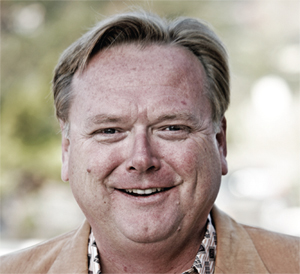In early March, hundreds of city managers from across the state of California gathered at a hotel in Newport Beach, whose city officials had a central hand in organizing the first ever meeting being held there of a new organization called the Residential Recovery Facilities City Coalition, RRFCC, a NIMBY group if there ever was one. In inviting the city managers, the RRFCC urged them to come to the meeting so that they might learn how to “protect†neighborhoods from recovery facility “encroachment†by partnering with the newly formed RRFCC.
While opposition to treatment centers located in residential neighborhoods is nothing new in California – the state has unique rules that essentially allow facilities of six beds or less to operate completely free of zoning restrictions, which has seen a proliferation of centers in well-to-do neighborhoods, especially in Southern California – the latest round of NIMBY opposition appears to be particularly vociferous and well organized.
The epicenter of the current fight is located in Newport Beach, just south of Los Angeles on the coast. And, admittedly, Newport Beach is clearly home to a huge number treatment centers and halfway houses, perhaps the largest such concentration in the country. By some estimates there are over 100 homes within just a few miles of each other that are occupied by treatment centers like CRC’s Sober Living by the Sea, with about 200 beds, and Morningside Recovery, as well as dozens of halfway houses and sober homes. But it is not just in Newport Beach that opposition is rising, but also in Malibu, where over 25 high-end centers operate using at least 50 homes, and in Orange County and as far north as Marin County outside of San Francisco.
Over the years, there have been efforts to legislate restrictions on the six-bed rule, all to no avail as most efforts have died even before reaching a vote on the floor of the legislature. And federal law protects sober houses, as the city of Boca Raton in Florida learned in February when a federal judge struck down the city’s opercontroversial attempt to restrict sober houses, a ruling that came about as a result of a private lawsuit. A federal suit, brought by the Justice Dept., is still pending against Boca Raton.
And while new anti-treatment legislation is being proposed in Sacramento as result of the new wave of NIMBY sentiment in California, some center owners and operators worry that a graver threat to the six-bed model might come from efforts to more stringently regulate the model on the part Department of Alcohol and Drug Progams, DADP, the state regulator.
A preferred method of expansion by six-bed model operators over the years has been to buy new houses nearby, while keeping each house at six beds, a method that has allowed centers like Creative Care in Malibu, and many others, to grow their operations to 30 beds, and sometimes much more, while staying under the six bed radar. “There has been strong pressure on DADP that is coming from neighborhood groups,†says Perry Litchfield, CEO of 18-bed Bayside Marin, a successful high-end center near San Francisco. “There has been talk that the regulators might mandate that each house be required to have its own staff. In essence, to require that each house be operated as a separate treatment center.†Needless to say, such a strict interpretation of the sixbed rule has the
potential to wreck havoc on the economics of much of the private side of the treatment business in the state. And wellheeled homeowners are hiring high-powered lawyers to ratchet up the pressure on state regulators. A small group of neighbors opposing Litchfield’s expansion of Bayside Marin have retained one of Sacramento’s best known law firms, which Litchfield says has been making noises about suing to force more stringent regulation of six-bed model centers, of which there are more than 200 in the state, according to Litchfield. The regulators may fear being sued, but we will not stand by quietly if our legal rights are threatened,†he says. And that’s no idle warning coming from a guy like Litchfield, who is widely recognized as one of the state’s ablest lawyers.












